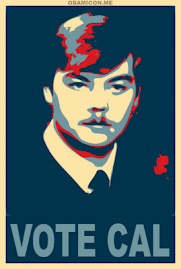
I was raised on tales of British Colonialism. Canada was once a Dominion of the British Empire, an empire upon which the sun never set.
I was always fascinated by the way that the British attempted to spread their culture to people whose life experience was vastly different from that of their 'colonizers'. Even when the locals adopted English ways they were never treated as 'equal' to their British 'overlords'.
Many groups fought back against any kind of control. Most famously, in the South African province of Natal, a native Zulu army, fighting with hide shields and spears, handed the British Army one of their most significant defeats during the Battle of Isandlwana in 1879. This 1979 movie is a prequel to the 1964 movie 'Zulu'.

This movie focus on both sides in the conflict. The disciplined but arrogant British and the traditional Zulu, who under their cautious king, Cetshwayo, prepare for war but will not wage it unless the British make their way into Zulu territory by crossing the Buffalo river that separates Zululand from the British settlements.
The King's refusal to disband his 30,000 strong army gives the British the justification they think they need to move in and crush the Zulus. They feel that this will be easy given the superior technology they have at their disposal.
Peter O'Toole and Burt Landcaster represent the two views in the British camp. O'Toole is the arrogant Lord Chelmsford who refuses to take advice from anyone who differs in his view of the inferiority of the Zulu soldiers and the threat they pose. Lancaster is Colonel Durnford, who commands a native African force and is humane where O'Toole is anything but.

We see in this movie how the Zulu were patient and exploited mistakes that the British made in underestimating their opponent. The unwillingness of English commanders to listen to advice given by others who had experience living and fighting in Africa was also a key factor in their downfall.
The battle scenes are excellent and in the days before CGI enhancements you get many wide angle shots of thousands of extras, on both sides, massing for battle. The costuming and music that accompany these scenes are also spectacular.
I enjoyed this production. It gave a fresh spin on a familiar historical event and told the story from many different perspectives. I feel now that I understand more about the events leading up to the battle that redefined the relationship between Britain and Africa for decades to come.


































































































%20SDTB.jpg)











7 comments:
The most defeating thing is that British and American Colonialism still continues.
And they are getting their ass handed to them just as thoroughly but they don't care - the young soldiers are just cannon fodder and fuel for the industrial war machine.
This movie was great. I remember seeing it when it came out, it was very good on the big screen.
Did you know that during that same time period, the Zulus themselves were busy with the annihilation of every other tribe and "kingdom" in their world? And while doing so, all those that weren't kept as slaves, were simply killed? The British may have had the technology edge, but when it came to brutality, they were school girls, when compared to the Zulu.
I wonder what Africa would look like today without European colonial involvement.
If you like that, I think you'd like "Zulu" even better. Though it was made before Zulu Dawn it takes place shortly after when a small detachment of troops has to fight off the zulu army. It is a riveting film to say the least.
LazarusLupin
http://strangespanner.blogspot.com/
art and review
For my money ZULU is the superior film. Plus it has Michael Caine.
Yes, I prefer 'Zulu' myself. This is a nice companion piece on the same subject
Post a Comment